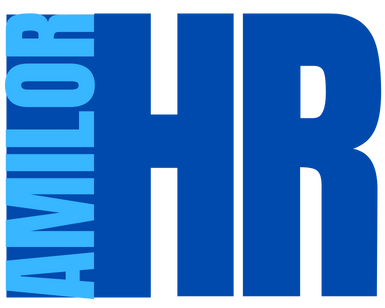HR Assistants play an essential role within companies, handling personnel administration and contributing to the smooth running of human resources. Let’s take a look at the main tasks of this multi-skilled professional, his or her key skills and the career prospects open to him or her.
The key tasks of an HR assistant
The HR Assistant is an indispensable link in a company’s human resources management. Their responsibilities are varied, touching on many aspects of employees’ working lives. Here’s an overview of the main tasks:
Personnel administration: This is one of the HR Assistant’s most important tasks. They are responsible for keeping track of employee files, drawing up and monitoring employment contracts, and managing absences, vacations and working hours. This role requires a high degree of rigor and excellent organizational skills.
Participation in the recruitment process: The HR Assistant actively participates in the hiring of new talent. Responsibilities include :
- drafting attractive job offers
- Screening applications
- Organizing job interviews
- Participating in the integration of new employees
Payroll management: Although this task is often shared with the accounting department, the HR assistant may be required to prepare payroll variables, draw up pay slips and make social security declarations. This task requires a high degree of accuracy and a good knowledge of social legislation.
Training management: The HR Assistant plays a crucial role in developing employee skills. He/she gathers training needs, participates in drawing up the training plan and ensures administrative follow-up of training actions.
| Mission | Importance | Skills required |
|---|---|---|
| Administrative management | High | Rigor, organization |
| Recruitment | Medium to high | Communication, analysis |
| Payroll management | Average | Precision, legal knowledge |
| Training | Average | Planning, coordination |
Essential skills and qualities of the HR assistant
To excel in their missions, HR Assistants must possess a combination of technical skills and personal qualities. Here are the main skills required:
Technical skills:
- Mastery of office tools (Excel, Word) and specific HR software
- Solid knowledge of labor law and social legislation
- Understanding of HR processes (recruitment, training, career management)
- Ability to draw up dashboards and carry out HR reporting
Personal qualities:
The HR Assistant must be rigorous and organized to effectively manage the multiple tasks assigned to him/her. Discretion is also essential, as they handle confidential employee information. Interpersonal skills are essential for interacting with all levels of the company’s hierarchy.
Versatility and adaptability are major assets for an HR assistant. They must be able to juggle different assignments and adapt quickly to changing priorities. Finally, good listening and communication skills are essential to understand employees’ needs and pass on information effectively.

Training and career prospects
To become an HR Assistant, you generally need between 2 and 5 years’ higher education. The most popular qualifications are :
- BTS Gestion de la PME
- DUT in Business and Administration Management
- Professional degree in Human Resources
- Master’s degree in Human Resources Management
These courses provide the theoretical and practical knowledge needed to work as an HR assistant. Nevertheless, on-the-job experience remains a major asset for advancement in this profession.
The career prospects for HR assistants are many and varied. With experience and enhanced skills, they can aspire to positions such as :
- HR Manager
- Recruitment manager
- Training manager
- Payroll manager
- HR Consultant
These career developments are generally accompanied by an increase in responsibilities and a more attractive remuneration package. The average salary for an HR assistant varies between €24,000 and €40,000 gross per year, depending on experience and company size.
The HR Assistant at the heart of the company
The HR Assistant occupies a strategic position within the organization. They are often theinterface between management and employees on HR issues, which requires an excellent sense of diplomacy and mediation. His or her role also extends to managing relations with staff representative bodies and external organizations such as URSSAF or occupational medicine.
As HR becomes increasingly digitalized, HR assistants must constantly update their skills and adapt to new tools and procedures. Legal and social monitoring is an integral part of the HR Assistant’s duties, enabling him/her to keep abreast of legislative developments affecting the human resources field.
HR Assistants can work in all types of companies and sectors. Their tasks may vary according to the size of the organization, with a tendency towards specialization in large companies and greater versatility in SMEs. This diversity of working environments offers many opportunities for professionals wishing to enrich their experience and develop their career in the exciting field of human resources.

